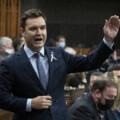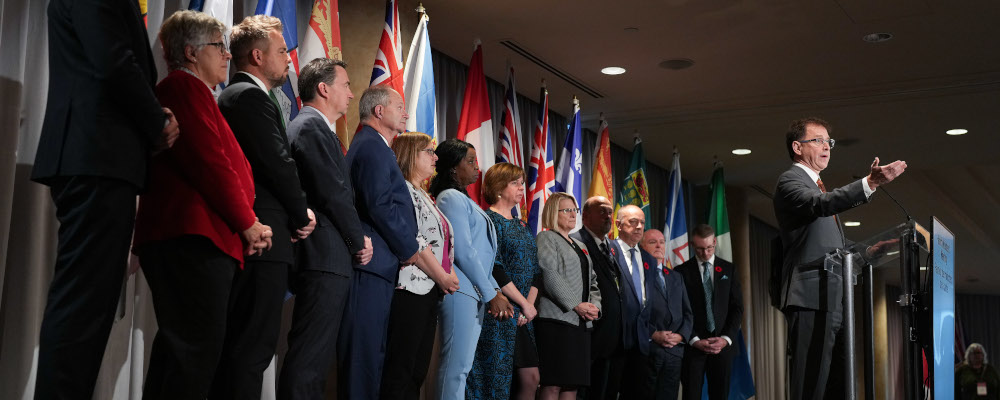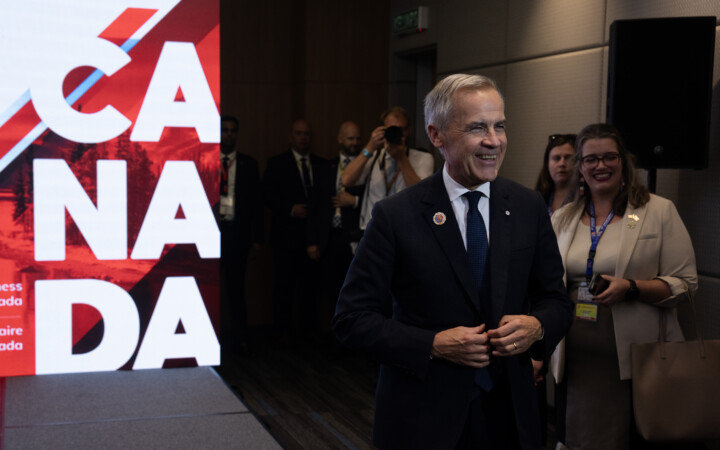The recent federal and provincial health ministers’ meeting in Vancouver ended without an agreement on increasing health transfers, and negotiations appear to have broken down and taken an acrimonious turn. The provinces have been asking for increases to the Canada Health Transfer that would raise the federal share of provincial health spending from 22 percent to 35 percent. Given that for 2022-23 the Canada Health Transfer to the provinces is expected to be 45.2 billion dollars, such an increase would amount to an additional cash transfer of over 25 billion dollars. This is a well-travelled road and the federal response to such requests usually begins with the mantra that if one includes the value of tax point transfers for health to the provinces brought in decades ago, then the federal share of provincial health spending is already at 35 percent—even though everyone knows the value of those tax points were incorporated into provincial own source revenues years ago.
However, the real bone of contention appears to be the federal insistence that any increase to the Canada Health Transfer be accompanied by the condition that a set of common national indicators be developed and applied to allow for monitoring of outcomes, and one expects measurement of whether the federal government is getting value for money and ultimately political credit. Predictably, the provinces, and Quebec particularly, have responded that this is an intrusion in their affairs given that they already have their own indicators. Given that health is a provincial jurisdiction, having the federal government set conditions to which the funding is tied is seen as an intrusion.
Historically, the provinces have displayed an affinity for the federation from Star Trek; that is, a federal government that observes but does not intervene in provincial affairs. Conditions on funding are considered a form of intervention. Though it is curious that the provinces do not display a similar attitude when it comes to their municipal grants.
In the end, the federal end of the current round of negotiations is being led by a health minister trained as an economist. As Minister Duclos knows, economics is ultimately about how people respond to incentives and simply handing over money without any conditions creates a perverse set of incentives. Simply handing over more cash to a set of provincial health systems in a country that has one of the highest health spending-to-GDP ratios in the developed world means business as usual. The provinces can take the money and not necessarily fix health care and then still blame the federal government for insufficient funds.
After all, the enhanced transfers of the 2004 Health Accord with its 6 percent annual increase escalator that lasted until 2017 was supposed to buy fundamental reforms and transformative change. And yet, twenty years later here we are facing similar issues of physician and nurse shortages, crowded ERs, and lack of access to timely care. The pandemic and its aftermath have only worsened the situation but are not the cause.
The federal government is not going to simply hand over the cash. It realizes that health is ultimately a provincial responsibility and therefore any political fallout from increased wait times and lack of access will land at the feet of the provinces. The premiers can blame Ottawa all they want for the current crisis and claim that increasing transfers are needed to solve the health systems problems, but the public knows that health is a provincial responsibility given they provide provincial health cards when they seek medical services.
And Ottawa does have a point that if the provinces can send assorted cheques to their residents and run surpluses then they should be able to find the money for health care. Ontario is a case in point with rebates for vehicle registrations and a two-billion-dollar surplus. Then there is Quebec, which is providing cash payments of up to $600 to help Quebecers fight inflation. However, Ottawa is being somewhat disingenuous on this point given that they have provided more than their fair share of rebates and monetary enhancements to Canadians.
Is there a way ahead? Well, there is nothing preventing the federal government from coming up with its own indicators based on available provincial data and creating a new grant that would complement the existing Canada Health Transfer, which would remain operating as it has. Let’s call the new grant the Canadian Health Enhancement Transfer, or if we are feeling more whimsical, CHTPlus, and make it available to those provinces that are willing to comply with its terms. It could set the measurement indicators and set priorities for the money. We could add a new term to the Canadian federalism lexicon: incentives-based federalism.
CHTPlus could for example set a target of so many physicians or nurses or hospital beds per 100,000 population or target increases in those indicators. It can tie the funding to increases in surgeries for specific procedures or reductions in wait times. It can base some of the enhanced funding on population indicators like share of population over age 65. In short, it can construct a formula and tie the amounts of a new block grant to the formula and tie future amounts and increases to fulfillment of the targets. Provinces will have an incentive to enact change and exhibit improvements and they can decide how to make those changes.
The existing CHT would continue. This would be new money tied to improved outcomes. Provinces that feel they are being subjected to domineering federalism can decline the new grant and find their own way ahead. And, of course, the federal government needs to resist pressure by standing firm and not allowing provinces to lobby and opt-out from the conditions and still get the cash as a special case. Will this work? We won’t know until it has been tried. However, unless the federal government caves in and hands over more cash with few or no strings attached, this is probably the only way forward.
Recommended for You

‘We’re back in the haunted house’: Danielle Smith’s multi-billion-dollar deficit problem

Why neither Carney nor Poilievre is rushing towards a snap election

Canada’s great refugee disaster

How the risk of separation could cost Alberta thousands of jobs




